
We at the dog guide want to help you make the best decisions when seeking out your perfect canine companion. Rescues and shelters have thousands of wonderful pets for adoption every day. We also support reputable breeders. How do you know if a breeder is responsible and reputable?
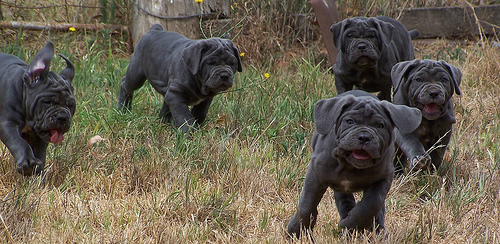
Finding the right puppy for your family can be an intimidating task. There are hundreds of breeders out there advertising on the Internet, in newspapers, and even on telephone poles. We’re here with a comprehensive guide to help you through the process of finding a breeder. We’ll discuss red flags, questions you should ask, and other general advice to help you find the right breeder.
The First Step. Once you have decided on the right breed for you, locate their national breed club’s website. On this page you should find a list of breeders that are members of the parent club. Drop a few of them a friendly email inquiring about their upcoming litters.
Patience is a Virtue. Good breeders won’t always have litters of puppies available. Often they will be able to refer you to other breeders who will have a pup for sale sooner. Remember that this is not a process that you should rush. This puppy is going to grow into a dog that will be with you for a very long time! It is not a decision that should be made on an impulse or hurried through.
Questions Abound. A reputable breeder should want to talk all about their breed and be more than willing to answer any questions about their dogs’ personalities, diet, grooming, and any health issues the breed is prone to. Once you establish a report with a breeder, make sure to make a thorough list of any questions you may have. Research your breed before you contact the breeder so you know what kinds of questions you should be asking.
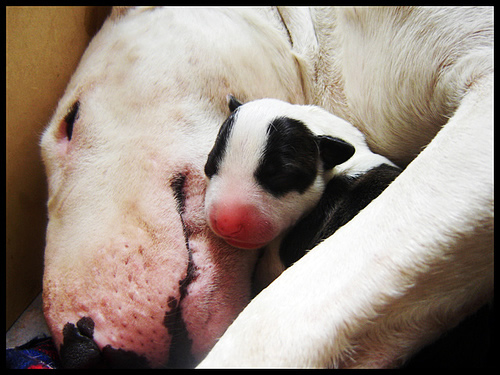
Be Prepared to Answer Questions Too. A good breeder only wants what is best for their dogs, so they are going to have lots of questions for potential parents! They are going to want to know about how much time you plan to devote to your new furry family member, how active a life you lead, if you plan on participating in any activities with your dog, etc. They will probably want to meet your whole family and a good breeder will encourage MULTIPLE visits with your puppy before he or she goes home.
Take a look around. The dam (mother) of the puppies should be available for you to meet, if not both parents. All of the breeder’s dogs should be well cared for, clean, and have temperaments that you would want in a pet! Do not accept excuses for unfriendly behavior. The puppies’ space should be clean and well kept. They should be living in the same space as the humans of the household, not in an “out building”.
Price. When you get a puppy from a reputable breeder, you should expect to pay a decent amount for that dog. Good breeders do not make profit off of their litters. They must think about the cost of genetic health screenings for the parents, prenatal care for the dam, veterinary trips for the puppies, registration of the litter as well as a high quality diet for mom and pups as she is nursing. There is also a huge amount spent on showing and titling dogs in activities. These events prove that the dogs are worthy of being bred in the first place. When you buy a dog from someone who is active and knowledgeable about their breed, you also get a lifetime of support about your dog’s needs, whenever a question arises.
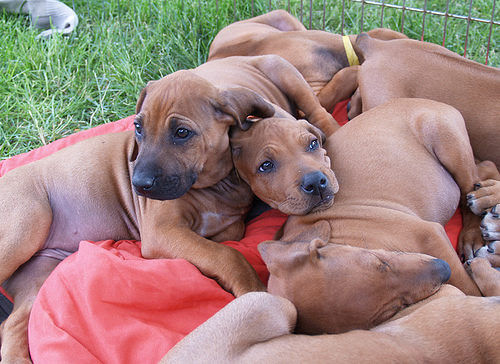
The Return Policy. A responsible breeder will ALWAYS take a dog back if you cannot keep it - under any circumstances and at any point in the dog’s life. This is not providing you with an easy way out by any means. It is because good breeders are passionate about their dogs and want to know how they are doing at all stages of their lives.
Limited Registration. Most reputable breeders will only sell you a puppy with limited registration. This means they are selling you the puppy on a spay/neuter contract. Very few dogs are worthy of being bred and no one knows better about this subject than an expert in the breed! Your breeder might make you sign a spay/neuter agreement before you receive a registration certificate, but each breeder has his or her own way of working through this process.
Signs that you might be looking in the wrong place:
Ads that claim “Champion Bloodlines” – A responsible breeder will not breed dogs that are not titled. If you don’t see “CH” in front of the parent’s names or either of the grandparents, it is best to seek out a different breeder.
Many Breeds Under One Roof – Breeding dogs properly takes a huge amount of time, energy and money. It is a red flag when a breeder is working with multiple breeds. It usually means they are in the business for the money and not for bettering the breeds they are working with. One or two different kinds of dogs are ok, but more than that is a sign to watch out for.
Puppy websites: I have come to discover that there are now websites where you can add a puppy to a shopping cart and in a few weeks it will be delivered to your door. I have few words for this. It is nothing more than a high-tech puppy mill. Please do not buy a dog from anyone without seeing where and how it was raised. This dog is going to be your companion for a very long time and with irresponsible breeding comes scores of health and mental issues.
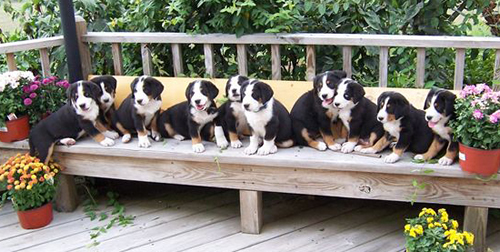
About Pet Stores: Responsible breeders will never sell to pet stores. Ever. There is no way they will let the pups that they put so much time and effort into be sold without any knowledge of who these families are.
Attend Events: I have found a great way to make breeder contacts is by attending shows and other gatherings hosted by breed clubs. If you go to the website of the breed you are interested in, there is usually a list of upcoming events. Head to one of them and ask questions of the individuals participating. You should be able to compile a wealth of information.
What is the breeder’s experience? How long have they been breeding? While everyone does have to start somewhere, dealing with a novice is not what you want when you are getting a new puppy. You want to be working with someone who has been an active member of the breed club for a good amount of time and can share their knowledge and experience with you.
Why did you breed this litter? What are you hoping it will bring to your breeding program? With the answer to this question you can learn a lot about a breeder, their goals, and their experience. If they can’t answer this question in an educated way, it is a red flag.
What genetic issues can this breed have? A knowledgeable breeder should be willing and able to tell you what issues could occur in the breed (hip dysplasia, heart problems, Entropian, thyroid issues, etc) as well as what kinds of testing are available. They should be testing all of their breeding dogs. Ask for documentation of health testing that proves that these dogs are free from these issues. (For example OFA (The Orthopedic Foundation for Animals) tests for hip issues.) If the breeder cannot provide that the animals have been health screened, perhaps this is not where you want to be getting your puppy. Any dogs that have signs of congenital health issues should not be bred. Do not buy from a breeder who is breeding dogs with genetic issues or who is not health testing their dogs.
Can I have some references? Ask the breeder for the contact information of owners of pups from their previous litters. They should be happy to supply you with this information.
What do you feed your dogs? Make sure the breeder has been feeding the puppies a premium diet.
How old are your puppies when they go to their new homes? Will they have had all of their vaccines they need? A conscientious breeder will not sell you a puppy before the age of 8-12 weeks of age. It is critical to the social development of your dog that it stays with its mother and siblings until it is at least 2 months of age. A responsible breeder will also start the vaccine series and will fill you in on exactly how it needs to be completed. They will provide you with official and complete medical records for your puppy.
Ask the breeder any and all questions you might have- they should be more than happy to answer them for you. Good luck!
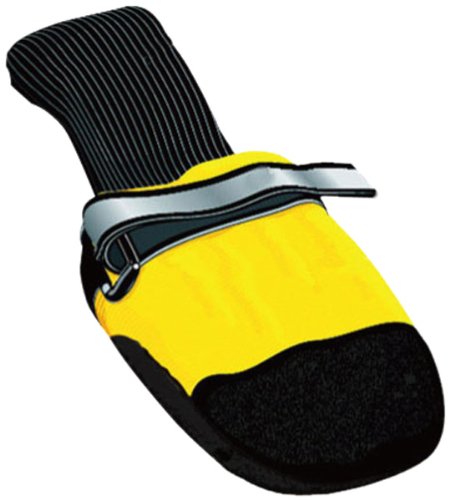 Designer Doggy Wear
Pampered PoochesWeve all seen them right? Little doggie
Designer Doggy Wear
Pampered PoochesWeve all seen them right? Little doggie
 Dog Treats: Which Dog Treats Are Safe and Which Arent?
Dog Treats: Do You Know What’s Safe and What Isn&rsqu
Dog Treats: Which Dog Treats Are Safe and Which Arent?
Dog Treats: Do You Know What’s Safe and What Isn&rsqu
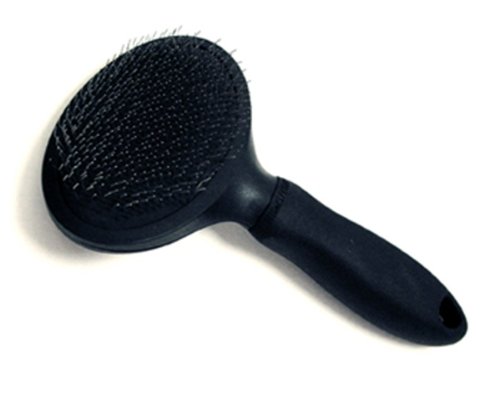 Caring For a Golden Doodle
Credit: www.pixabay.com
Caring For a Golden Doodle
Credit: www.pixabay.com
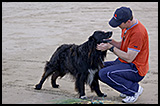 Basic Learning Theory and Dogs
Basic Learning Theory and Dogs
Basic Learning Theory and Dogs
Basic Learning Theory and Dogs
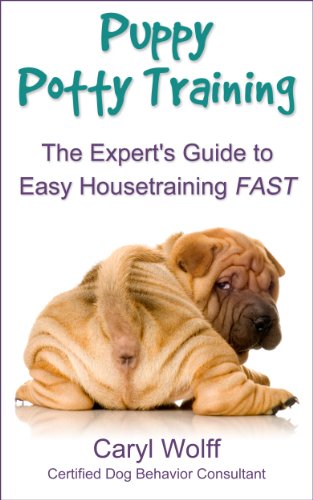 Top 5 Tips to Potty Training a Puppy
Credit: Erin Patterson via Flickr
Top 5 Tips to Potty Training a Puppy
Credit: Erin Patterson via Flickr
Copyright © 2005-2016 Pet Information All Rights Reserved
Contact us: www162date@outlook.com